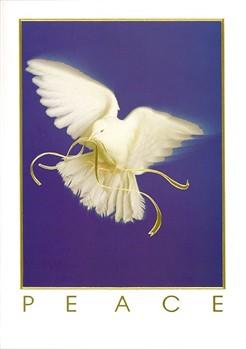I love Peace
Washington Post
A decision to make the Serb province independent is near. Will Serbia and Russia obstruct it?
THE SERBIAN parliament formally adopted a new national constitution on Wednesday, following its narrow approval by voters in a referendum last month. The document was a necessary replacement of the previous charter, which was adopted during the rule of nationalist warlord Slobodan Milosevic. But it may have won acceptance only because it included a preamble that would have warmed Mr. Milosevic's heart: a declaration that the province of Kosovo, which Serbia in effect lost seven years ago, is an "integral" and "inalienable" part of the country.
In fact, the United Nations, which has governed Kosovo since NATO freed it from Mr. Milosevic's brutal ethnic cleansing campaign, is due to decide the province's future by year-end -- though a decision may be delayed until after a Serbian election scheduled for late January. Serb leaders know what a U.N. mediator will recommend and what all Western governments will support: independence for the territory, perhaps with transitional conditions. Kosovo is populated overwhelmingly by ethnic Albanians; after the ethnic war Mr. Milosevic initiated, there is no chance the province can be returned to Serbian sovereignty. By incorporating a claim to Kosovo into a new constitution, Serbia's leaders staked out yet another of the reckless nationalist stands that have caused their country so much damage in the past 15 years.
They also set the stage for some difficult and potentially dangerous diplomacy between the Bush administration and Russia over the next two months -- negotiations that could settle or destabilize the Balkans and the equally volatile Caucasus region on Russia's southern border. Russia, Serbia's long-standing ally, is the largest potential obstacle to consensus in the U.N. Security Council on a Kosovo solution. Though he knows that independence for Kosovo is inevitable, Russian President Vladimir Putin is hinting that he may support Serbia's obstructionism. He may hope to extract favors from President Bush in exchange for his eventual cooperation -- such as U.S. acquiescence to Russia's entry into the World Trade Organization.
Or Mr. Putin may try to use Kosovo to trigger a showdown with his Caucasus neighbor, Georgia, which has infuriated him by embracing liberal democracy and seeking integration into Western institutions such as NATO. Mr. Putin has said that Kosovo's independence could be a precedent for Moscow-sponsored breakaway regions in Eurasia, including two rebel provinces of Georgia. If Western governments recognize Kosovo's independence, Mr. Putin could respond by recognizing Abkhazia and South Ossetia. This could easily trigger a war that would draw in Russian troops; meanwhile, Moscow's position could encourage Serbs in Kosovo and Bosnia to set up splinter states.
Moscow is no doubt hoping that as the Bush administration contemplates this scenario, as well as its continuing need for Russian help in stopping Iran's nuclear program, it will be bluffed into postponing any decision on Kosovo or will abandon its support of Georgia's democracy and NATO aspirations. Either would be a serious mistake. Putting off Kosovo's independence would only enrage the province's 2 million Albanians and trigger the Balkan meltdown that the West hopes to avoid. It would also encourage Mr. Putin's growing tendency to use threats -- whether of energy-supply interruptions or violence -- to get his way with the West.
Best Wishes
17 November 2006
Subscribe to:
Post Comments (Atom)

2 comments:
Pazi samo da ne dobijete samostalnost. :) Mislis li da otimanje i sila mogu da se priznaju kao legitimna sredstva?
nemamo zasto da se pazimo od samostalnosti...ovo je sto mi zelimo... historia je pokazala da otimanje na sillu nije legitimno i srbija potvrdila to kad je htela da na silu drzi Kosova.
mi cemo da pobedimo na miru...
hvalla
Post a Comment